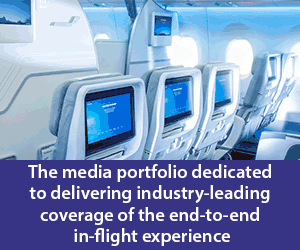Boeing and Embraer have signed a Memorandum of Understanding (MoU) to establish a strategic partnership.
The non-binding agreement proposes that the companies will form a joint venture (JV), made up of the commercial aircraft and services business of Embraer aligned with Boeing’s commercial development, production, marketing, and lifecycle services operations.
Under the terms of the agreement, Boeing will hold an 80% ownership stake in the joint venture while Embraer will own the remaining 20% stake.
Paulo Cesar de Souza e Silva, Embraer chief executive officer and president said the deal would strengthen both companies’ leadership in the global market. He continued: “The business combination with Boeing is expected to create a virtuous cycle for the Brazilian aerospace industry, increasing its sales potential, production, creating jobs and income, investments and exports, and in doing so, adding more value to customers, shareholders and employees.”
The transaction values Embraer’s commercial aircraft operations at $4.75 billion, and contemplates a value of $3.8 billion for Boeing’s 80% ownership stake in the JV.
The proposed partnership is expected to be accretive to Boeing’s earnings per share beginning in 2020, and to generate estimated annual pre-tax cost synergies of approximately $150 million by year three.
Boeing’s chairman, president and chief executive officer, Dennis Muilenburg, said that by forming the strategic partnership: “We will be ideally positioned to generate significant value for both companies’ customers, employees and shareholders – and for Brazil and the United States.”
“This important partnership clearly aligns with Boeing’s long-term strategy of investing in organic growth and returning value to shareholders, complemented by strategic arrangements that enhance and accelerate our growth plans,” he added.
Once finalised, the commercial aviation joint venture will be led by Brazil-based management, including a president and chief executive officer. Boeing will have operational and management control of the new company, which will report directly to Muilenburg.
The JV will become one of Boeing’s centres of excellence for end-to-end design, manufacturing and support of commercial passenger aircraft, and will be fully integrated into Boeing’s broader production and supply chain.
The companies will also create another joint venture to promote and develop new markets and applications for defence products and services.
Finalisation of the financial and operational details of the strategic partnership and negotiation of definitive transaction agreements are expected to continue in the coming months.
It would then be subject to shareholder and regulatory approvals – including approval from the Government of Brazil, as well as other customary closing conditions. Dependent on the receipt of approvals, the transaction is expected to close by the end of 2019, 12 to 18 months after execution of the definitive agreements.
Greg Smith, Boeing chief financial officer and executive vice-president of enterprise strategy & performance, called the strategic partnership “a natural evolution” of the long-standing history between the companies, adding: “It is aligned with Boeing’s enterprise strategy of pursuing strategic investment opportunities where they demonstrate real value and accelerate our organic growth plans. This partnership will strengthen the vertical capabilities of Boeing and enhance value for our customers through the full lifecycle of industry-leading products and services.”
The companies say they will benefit from a broader scale, resources and footprint, including global supply chain, sales and marketing, and services network and that the strategic partnership will also provide opportunities to share best practices in manufacturing and across development programmes.
The transaction will have no impact on Boeing and Embraer financial guidance for 2018 or Boeing’s cash deployment strategy and commitment to returning approximately 100% of free cash flow to shareholders.
Written by: Kimberley Young
If you have any feedback about this article or would like to suggest a topic for future investigation, please contact us.





